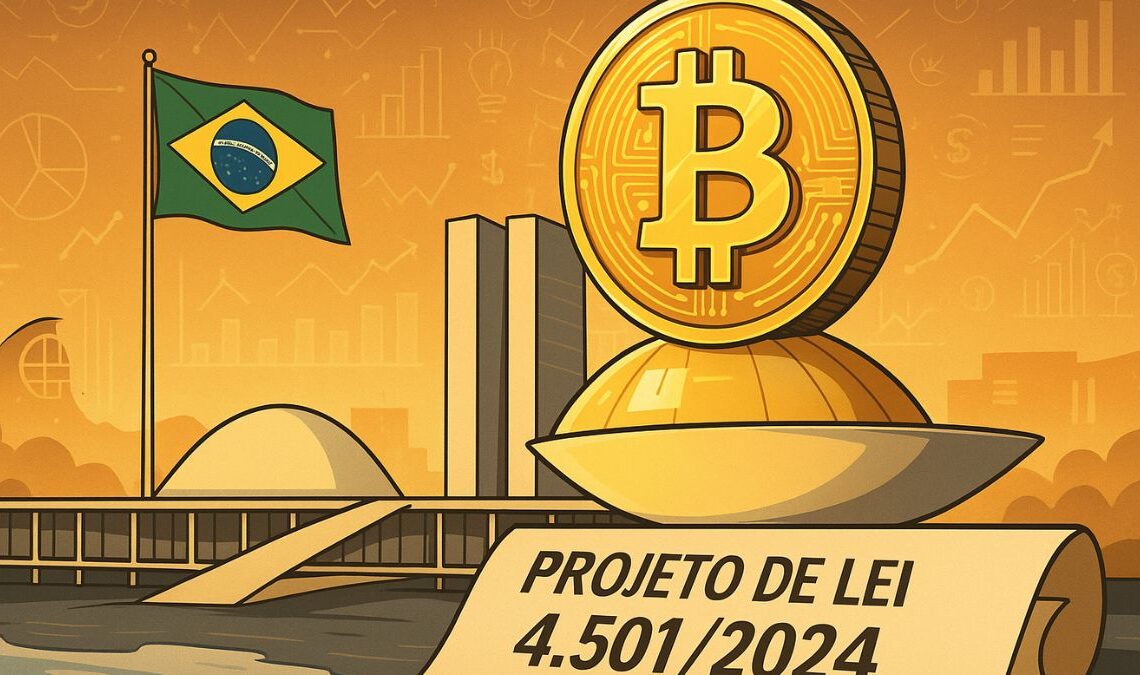Brazil is officially moving toward adopting Bitcoin as part of its national reserves. On June 12, 2025, the country’s Economic Development Commission approved Bill No. 4,501/2024, also known as the Brazil Bitcoin Bill, marking a pivotal step in crypto regulation at the sovereign level.
Table of Contents
ToggleWhat Is the Brazil Bitcoin Bill?
Proposed by Deputado Eros Biondini and reported by Deputado Luiz Gastão, the Bitcoin bill outlines the creation of a Strategic Sovereign Bitcoin Reserve. This reserve would allow the Brazilian government to hold Bitcoin as a strategic financial asset, strengthening the country’s economic autonomy and future-proofing its treasury in the digital age.
Key objectives of the bill include:
- Authorizing the federal government to purchase and hold Bitcoin
- Using BTC as a long-term hedge and reserve asset
- Integrating crypto into macroeconomic and financial planning
What’s Next?
While this approval is limited to a single committee, the bill now advances to other key legislative bodies, including:
- The Finance and Taxation Commission
- The Constitution, Justice and Citizenship Commission
If approved in the next stages, Brazil could become the first major economy in Latin America to hold Bitcoin at a national level.
Context: Global Trend Toward Bitcoin Reserves
Brazil’s move echoes similar bills recently passed in New Hampshire and proposed in Arizona, both aiming to create Bitcoin reserves at the state level. With growing concerns about inflation, debt, and monetary policy, more governments are viewing BTC not just as an investment, but as a strategic economic pillar.
This growing momentum supports the narrative that Bitcoin is transitioning from speculation to state-backed strategy.
Final Thoughts: Why This Bitcoin Bill Matters
Brazil’s Bitcoin bill is more than just symbolic—it could signal a major geopolitical shift. If passed in full, it would legitimize Bitcoin as a tool of sovereign finance and further integrate crypto into national policy frameworks.As inflation and geopolitical tensions rise, Bitcoin’s appeal as a neutral, decentralized reserve asset becomes harder for governments to ignore.










